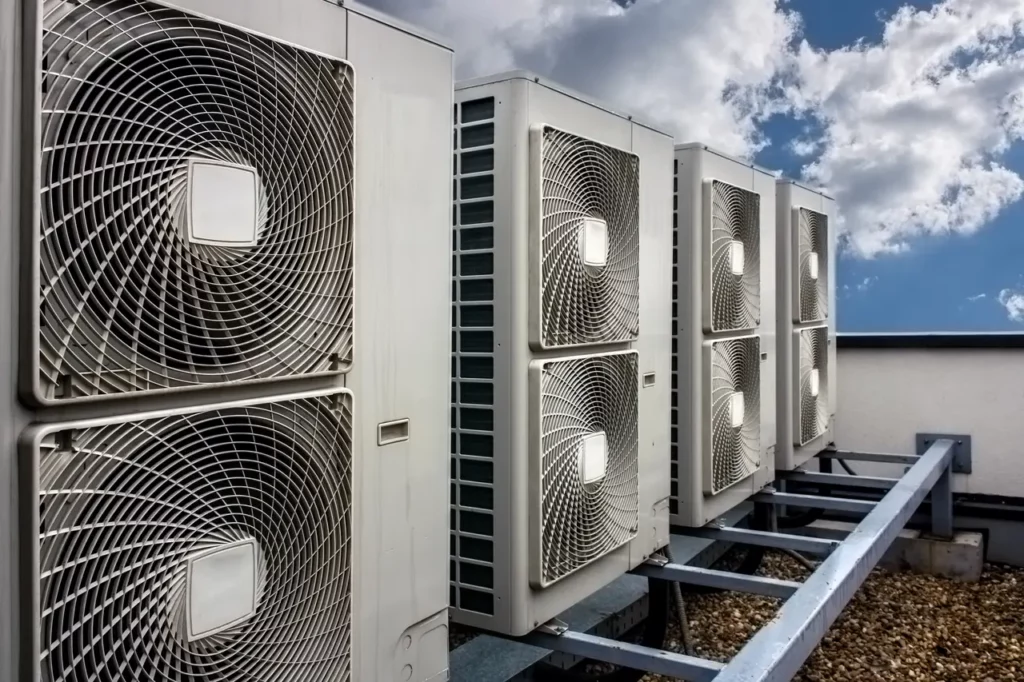
Testing, adjusting, and balancing (TAB) services are essential to ensuring the building systems and equipment of any facility are operating as they were designed to perform. But when it comes to code-compliant hospital projects, TAB is absolutely critical. TAB not only confirms whether systems are operating at their equipment-rated efficiencies but can also prevent costly downtimes in operability, cut unnecessary energy usage, and help uphold quality patient care for owners.
TAB firms exist to guide those hiring them in keeping their facilities compliant with the regulations set forth by regulatory agencies such as the Joint Commission on Accreditation of Healthcare Organizations (JCAHO) and state departments of health. Additionally, a project’s design specifications can further outline parameters that must be met, such as those of the Facility Guidelines Institution’s published Guidelines for Design and Construction or ASHRAE Standard 170 Ventilation of Healthcare Facilities. TAB providers certify whether or not the desired conditions are met.
“In Florida, we have the state Agency for Healthcare Administration. They review drawings, they do field inspections, and they do 100% inspection in which they’re reading grills, checking pressures, and all of that information in order to approve a healthcare facility where patients are involved,” explains Eric Jenison, President of Total Dynamic Balance, Inc.
NEBB Certified Firms and Personnel can provide TAB services, such as proper airflow and pressurization testing, needed to ensure compliance with many regulatory agencies. Taking the quality of TAB services a step further, the procedural standards and processes dictated by NEBB mean TAB work is accurately performed by a professional and well-documented. The strict standards of NEBB Certification help ensure clients are receiving the best TAB services possible, but ultimately, it comes down to the integrity of the technician himself.
“That’s why I got into this business. It’s either right or it’s wrong; there’s nothing in between. I got into healthcare because people were checking the test and balance, and you had to do it right. Therefore, you had to compete with people that are actually doing the balancing correctly. The state’s going to make sure you didn’t just skip a few rooms because they’re going to find it. They’re going to verify that the TAB on the project is done correctly,” states Jenison.
Technicians performing TAB services within critical healthcare environments—and therefore affecting the health of many healing patients—have even more reason to adhere to strict requirements. When the health of thousands of patients and the success of hundreds of medical professionals is on the line, the importance of maintaining a comfortable environment free of pathogens with the ability to spread infectious diseases becomes that much more important.
For TAB technicians who may still be learning the ropes of working in healthcare environments, the basics are a good place to start:
- Verify the types of rooms that require special ventilation. This includes measurement and verification of the sizes of those rooms.
- Identify and test the mechanical, electrical, and plumbing (MEP) equipment serving the special ventilation rooms. Measure the number of air changes and air exchanges as defined by the regulatory authorities. Then, measure the pressurization differentials.
- Report the pass/fail of the room. This means preparing certified reports of the testing to prove compliance with the regulations.
- Adjust all air flow devices to achieve compliance with the regulations, including both air change rates and space pressure relationships. Adjustments can help bring system operations up to meet minimum requirements.
- Recommend resolutions for any rooms that fail. Test results can be used to help determine a suggested path forward, such as selecting devices and equipment necessary for correcting an inability to achieve the required air flows and pressures.
“In hospitals, there’s much more involved in making sure it’s right. You have to have the exact, correct amount of supply in a room. In an isolation room, for example, you have to have the exact, correct amount of exhaust, and you have to create an air change requirement minimum that you must meet along with a room differential pressure. It’s much more complicated because the test and balance person is required to meet those requirements to verify that the engineers designed it correctly, that the airflow you’re putting in the room is going to meet the air changes, and that the room differential pressure is going to meet the requirement,” describes Jenison.
“Then, you have complicated systems. For example, operating rooms (ORs). A lot of times, ORs in the state of Florida are recommended to have 20 air changes per hour, so most engineers will design 25 to 30. That’s 30 air changes going on in an OR room 24/7, 365. Well, some facilities have figured out that if they go to a two-position system—occupied, unoccupied—they could then save a whole bunch of money by not running the ORs at 30 air changes in the middle of the night when they’re not being used. That adds a level of complication—now it involves a controls system and min and max settings for the ORs—so, it’s much more difficult.”
Without fully realizing the unique challenges of TAB in healthcare facilities, clients do not always readily realize that TAB services are not always equal. A TAB firm with experience working in the healthcare industry will have more knowledge of the specific access points and timing granted by hospitals, more expertise in troubleshooting within a protective environment, and greater abilities to train onsite facility personnel to keep things running smoothly between scheduled TAB services.
Many times, that vast experience means a more accurate cost estimate upfront—something owners should be aware of when cross-comparing quotes from different firms. “There’s no education like experience and awareness. Situational awareness is always the key,” summarizes Tom Hanlon, Commissioning Projects Manager at Cromwell Architects Engineers.
Proper Estimating
TAB firms need to master estimating their projects accurately upfront in order to work successfully in the healthcare industry. This means acknowledging and anticipating the unique work that is done in the hospital facilities to be serviced. Any building housing medical staff and patient care is going to be much more difficult to access due to scheduled and unscheduled procedures that could prove fatal if delayed.
“First and foremost, hospitals are interested in patient care. Hospitals are not on your schedule; you are on theirs. A technician cannot just waltz into an isolated, protected area or ICU because he has test and balance work to execute,” mentions Mike Locke, President of MechTech, Inc. “Of course, when more areas can be easily accessed, TAB firms require fewer hours to perform the testing they are hired to do. The more available access that can be provided without compromising patient care, the better the chance of costs being decreased,” he continues.
This may sound like common sense, but it is something that can easily be forgotten when it comes time to estimate the job. A small detail like accessibility can greatly affect the number of hours that need to be accounted for and, therefore, overall cost. To overcome this issue and keep things affordable for both the TAB firm and the healthcare client, Locke suggests including a contractual clause mentioning the anticipation of reasonable access to the necessary area(s).
Ensuring Accuracy for Testing
“Even if the TAB firm is provided with the given measurements of the special ventilation rooms that are to be tested on paper, it’s imperative that the first thing you do as a TAB technician is come on-site and measure length, depth, and height because the regulations depend on cubic feet of the room. If the measurements are off, it directly affects the results of the tests,” Locke explains.
The accuracy of testing, adjusting, and balancing services is essential to these controlled hospital environments because they rely on TAB providers to deliver tests, proving all critical, core ventilation routes are within compliance with specific JHACO or state regulations. TAB firms that work in healthcare know that if something goes wrong and someone gets sick, it is their reputation—and possibly even business—on the line. NEBB Certified Firms use industry practices to measure the rooms they work within to ensure their work is correct from the beginning.
Researching Regulations
Another common challenge of offering TAB services for the healthcare industry is that most hospitals are built in phases. What that means is that the TAB firm needs to research the requirements for each part of the building they will be testing.
“If part of the hospital was constructed in 2002 and another part was added in 2018, those two separate areas could very likely have different regulations to comply with. A good TAB provider is going to know the differences to optimize the tests and note the code it was tested against accordingly,” says Locke.
Different states can have different requirements, too. A TAB provider needs to be well-versed in the regulations of the states they work within and remain up to date on those regulations.
“If you’re used to one environment, you need to do your research if you get work in another state. We do work in a lot of places and would always research state health requirements,” cautions Hanlon. “For example, Arkansas and Missouri are bordering states, but their required air change rate for patient rooms is different.”
Providing Solutions
It’s important for TAB providers to help clients in every industry, but particularly in healthcare, to understand that the services they provide are a helpful and necessary resource. As a TAB provider, you can help clients see that you are there to help by offering professional expertise.
“TAB is not a threat, pointing out instances of non-compliance. Our tests are purely driven by regulations. We measure it, and if it fails, it’s our job to tell the owners how far off it is and how to fix it. We’re there to help them,” states Locke.
However, it’s not surprising that clients with failed systems and equipment can feel overwhelmed and even frustrated when facing such results and don’t know where to start. By suggesting possible resolutions, TAB firms are not only helping to relieve owners and facility personnel of that headache but also helping themselves build long-term client relationships by being seen as helpful partners.
“There tends to be a misconception that only engineers can provide solutions, but that is not true. TAB guys are knowledgeable about the systems and equipment they test and, therefore, able to offer client solutions. We’re all qualified to do troubleshooting,” suggests Locke.
TAB for Facility Maintenance
Most of the time, TAB is not involved with new construction until the bidding process, when the project is already fully developed. TAB firms are hired on when the hospital project is being constructed, but continuous TAB work over the facility’s lifecycle is vital to its long-term performance.
“If we’re doing our job right, we should be providing training on proper maintenance procedures. We train owner’s staff to do what we’re doing, allowing them to do a quarter or half of what we’re doing, and then they only hire us once per year, which is the goal. In theory, we should be able to come back the next year and charge the same or slightly less,” mentions Locke.
“As TAB providers, we really need to help people see that TAB is more than a contractor. We need to be viewed as an extension of the maintenance team,” states Hanlon. “In the healthcare industry, TAB is a long-term partner. Most state codes are enforced only when a facility is built, but JCAHO is every two years.”
For that reason alone, clients need TAB firms to perform testing and provide reports verifying compliance. But by encouraging clients to be proactive versus reactive, TAB firms can offer testing—and solutions—prior to inspection by a regulatory agency like JCAHO.
By periodically providing test and balance services throughout the life of the equipment, TAB firms can help healthcare owners reduce equipment malfunction, maintain sterile environments, and regulate energy consumption for their facilities.
